The U.S. Copyright Office has released a new application form for authors of “short online literary works”—including articles, blog entries and social media posts—to register up to 50 of these works in a single application for one fee. But archaic definitions of “publication” will likely trip up many authors, whose works may not actually be covered by the new rule.
The U.S. Copyright Office announced that its new group registration option for “Short Online Literary Works” (known as GRTX) is open for business. The online application form was released on October 29, 2020 for submission through the Office’s electronic registration system. Applicants must submit the online application through the Office’s eCO portal and upload a ZIP file containing a separate digital copy of each work.
Group Registration of Short Online Literary Works (GRTX)
GRTX is the result of a two year rulemaking process prompted by a petition from several author advocacy groups including the American Society of Journalists and Authors (ASJA) and the Science Fiction and Fantasy Writers of America, Inc. (SFWA), among others. These groups were concerned that copyright registration was effectively unavailable for the individual writers of works posted on websites, blogs, social media platforms and other frequently-updated internet sites.
During the rulemaking period, comments from additional advocacy groups such as the Copyright Alliance and the Authors Guild helped guide further development of the proposed rule. The Copyright Office adopted the final version of GRTX in June 2020 to take effect this month.
Instead of having to file separate applications (and pay a separate fee) to register blog posts or articles published on different days, qualified applicants are now able to group and register together up to 50 “short online literary works” published online with one application and a single $65 filing fee. Eligible works include poems, short stories, articles, essays, columns, blog entries, and social media posts.
GRTX Requirements
In order to qualify for the benefits available by using GRTX, authors must satisfy a number of requirements:
- Each work must consist of “text”; artwork, photographs, audiobooks and podcasts are not included.
- Each work must contain at least 50 but no more than 17,500 words.
- The works must be created by the same individual, or jointly by the same individuals.
- Each creator must be named as the copyright claimant or claimants for each work.
- The works must all be published online, as part of a website or other online platform.
- The works must not have been published in a physical form before they were published online.
- All works submitted on a single application must have been published within a three-calendar-month period.
- Works made for hire by an employee or an independent contractor don’t qualify for GRTX.
GRTX is primarily designed to benefit individual authors (as opposed to corporate websites). These authors often lack the time or money to register their works using a standard application. By including works from 50 to 1,7500 words (about 70 double-spaced pages), GRTX can encompass works as short as tweets (more on this later) and as long as online novelettes.
I’ve read a number of articles since the GRTX rule was adopted congratulating the Copyright Office for finally “entering the social media age” and celebrating the fact that authors of blogs, online articles and even public Facebook posts will now be able to register their works easily, cheaply and efficiently.
Sounds good, right? The problem is that the rule only applies to “published” works. And as we’ll see below, the concept of publication is anything but easy.
What is “Publication”?
To see why distinguishing between “published” and “unpublished” works may present a problem for the very authors GRTX was designed to benefit, we need to look at the definition of “publication” under the 1976 Copyright Act. This law was passed before millennial and Gen Z bloggers were even born, but it governs all copyrighted works created during the online era:
“Publication” is the distribution of copies or phonorecords of a work to the public by sale or other transfer of ownership, or by rental, lease, or lending. The offering to distribute copies or phonorecords to a group of persons for purposes of further distribution, public performance, or public display, constitutes publication. A public performance or display of a work does not of itself constitute publication.
17 U.S.C. § 101
The definition of “publication” hasn’t changed since the 1976 Copyright Act was first enacted, even though our conception of publishing certainly has evolved in the digital age.
In order to better understand the law, let’s break down the definition a bit.
The first thing to notice is that whether a work is considered “published” is based on the concepts of “copies” and “distribution,” i.e., whether copies of the work are distributed or offered for distribution to the public. Publicly displaying a work, as opposed to distributing it, does not by itself constitute publication.
What this means—and it’s counterintuitive—is that the act of hitting “publish” on WordPress and displaying your blog or online article on a live website does not in and of itself constitute publication under the Copyright Act.
Even the Compendium of Copyright Office Practices (the manual of procedures utilized by Copyright Office staff) recognizes the incongruity in applying the definition of “publication” to online works:
It may seem odd that allowing the whole world to view or hear a work does not constitute publication of a work, but the statutory definition is clear that the public performance or public display of a work does not, in and of itself, constitute publication.
Compendium of U.S. Copyright Office Practices, section 1008.3(B)
So if the mere public display of your blog post doesn’t constitute publication, will your online content ever be considered published? The answer may depend on what you allow your readers to do with that content after you post it.
Publication of Online Content
According to Copyright Office Compendium section 1008.3(B), in the chapter governing websites and website content, “[a]s a general rule, the U.S. Copyright Office considers a work ‘published’ when it is made available online if the copyright owner authorizes the end user to retain copies” of the work.
For bloggers, this means that if you expressly allow readers to print, download or save your articles for offline viewing, you’ve probably created an inference that copies have been distributed and publication has occurred.
For example, by including a “print” button or a “download” icon next to your content which converts your articles into PDF documents, you’re signaling to your readers that they have permission to retain a copy of your work in physical form.
Print Download/Save
Of course, the absence of a print button doesn’t usually prevent people from printing your articles as a technical matter, but in the eyes of the U.S. Copyright Office, you haven’t authorized your audience to retain copies of your work. Your intent—as demonstrated by your affirmative conduct—is what matters.
Some websites go so far as to tell readers what they aren’t allowed to do with the site’s content. According to Compendium section 1008.3(F), “if there is a notice on the webpage, in the terms of service for the site, or in another obvious place stating that the work and/or all content on the site may not be downloaded, printed, or copied (or other statement to that effect), that work(s) may be deemed unpublished, because any copies that may be downloaded, printed, or otherwise distributed to the user have not been authorized by the copyright owner.”
In the absence of these sorts of express notices, trying to determine what’s been authorized may be a difficult task—which means that trying to figure out whether a work has been “published” is also difficult. If you do a deep dive into the Copyright Office Compendium, you’ll find this little gem:
If downloading, reproducing, or retransmitting is facilitated in some manner by the website, there may or may not be an implied license to distribute the work, in which case the work may or may not be considered published.
Compendium of U.S. Copyright Office Practices, section 1008.3(F)
Pretty clear, right?
Making Your Intentions Known
As an author and copyright owner, it’s best to try to control your own publication destiny. That means you’ll need to decide what message you want to convey on your website about what you are, and are not, authorizing readers to do with your content. For example, if you’re like most bloggers, you’ll embed icons on your site which encourage readers to share articles on their social media accounts. When they share, links will be created back to your original source material.

At the same time, you probably also have a copyright symbol or “All Rights Reserved” language somewhere on your website footer or on your terms and conditions page. So, in this case, you’re basically telling readers that it’s fine to share links to your content, but not to simply copy and paste your content to their own websites or social accounts.
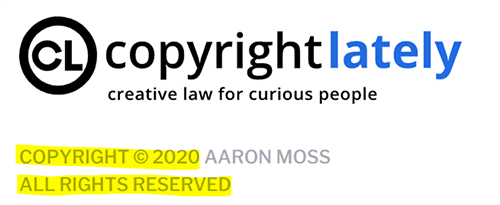
Another way your online work may be deemed published is if you distribute email containing the full text of the work. Let’s say you have a weekly email newsletter that you send out to all of your subscribers. If you include full text copies of your articles within the body of the email, they’ll likely be considered published. On the other hand, if you only include links so that subscribers have to click on your website to read the articles, this shouldn’t, by itself, constitute publication.
So, Has Your Online Content Been Published?
Let’s see how these concepts might play out in the real world with a few examples.
First, take Alice the Article Gal and Betty Blogger, both of whom have their own websites. Alice places a “download” icon next to her articles, and also sends out a weekly email that contains, not only a link to her site, but also the full text of her posts. Betty’s website, on the other hand, includes icons allowing readers to share her posts on Twitter and Facebook, but she doesn’t offer a print or download option. Alice’s work may be considered published (qualifying her for GRTX), while Betty may be out of luck.
Second, let’s look at Fern the Forbes Contributor and Milton the Medium Post Author. (And yes, I now regret using old-timey names for my examples, but at this point I feel I need to run with it). Fern’s articles have a print option enabled by Forbes. Milton’s articles don’t have a print option because this is not a feature used by Medium. Fern may be able to register her articles using GRTX, but not Milton.
Forbes—print option Medium—no print option
What about online content created specifically for social media platforms? Do Trudy Twitterer and Frannie Facebooker qualify for GRTX? The Copyright Office officially touts GRTX as an efficient and economical option for registering a copyright in social media posts. In addition, the Copyright Office’s FAQ about GRTX states that applicants “may provide a title that references the website where the work was first published (for example, ‘Facebook Post 1/1/2020,’ and ‘YouTube Comment 1/10/2020’).” The Copyright Office is certainly suggesting that these posts would be considered “published” under the Copyright Act.
But are they? By uploading your work to a site like Twitter or Facebook are you really “distributing” that work? If so, why is uploading a post to Facebook’s servers any different than uploading a post to a WordPress site and hitting the “publish” button? If displaying an article on your own hosted blog doesn’t constitute “publication,” displaying that same content on Facebook shouldn’t be any different—especially if Facebook doesn’t authorize its users to save copies offline.
A couple of years ago, I represented a company that was registering some videos it had uploaded to YouTube. The copyright registration specialist reviewing the application took the position that because the work could only be streamed, and not downloaded, no copies had been distributed. Therefore the work would not be considered “published” unless it had been distributed in some other form. The fact that the video had been copied and uploaded to YouTube’s servers didn’t count.
In my case, whether or not the video was considered “published” at the time of registration really didn’t matter. But to qualify for GRTX, whether a “short online literary work” has been published or not makes all the difference. Remember that under the new Copyright Office rule, you can register up to 50 works in a single application with a single fee, but only if they’ve been published online.
To make matters worse, the Copyright Office won’t make a decision for you as to whether a short online literary work is “published’ or “unpublished.” This needs to be determined by each applicant. Given that this is an area that most lawyers don’t know, I’m not sure how the average individual online author is expected to figure it out.
The end result is that, for all of the hoopla surrounding the Copyright Office’s announcement about group registration for online works, many authors may not actually qualify, because their works have not technically been “published” in the eyes of the Copyright Act.
Alternatives to GRTX
If your online work is deemed unpublished, and therefore doesn’t qualify for GRTX, you do still have a couple of other options for registering your work with the Copyright Office. Unfortunately, neither is as good as GRTX.
The first option is the Standard Application. An individual work appearing on a website can be registered so long as it constitutes copyrightable subject matter and contains a sufficient amount of original authorship. The problem with the Standard Application is that you need to submit one application for each article, at $65 per application. Registering the hundreds of articles found on a typical blog site would be an extraordinarily time consuming and cost-prohibitive endeavor.
The second option, as of 2019, is a Group Registration of Unpublished Works (GRUW). GRUW allows up to ten unpublished works of the same type, created by the same author or group of authors, to be included on one application with a single filing fee.
GRUW is likely the best option for bloggers if their works are considered “unpublished” under the Copyright Act. But GRUW doesn’t hold a candle to GRTX in terms of bang for the buck. GRTX allows up to 50 works to be registered on a single application for a single fee. To add insult to injury, the fee for GRUW is currently $85, while the fee for GRTX is only $65.
This means that while registration costs as little as $8.50 per individual work via GRUW, it can be as low as $1.30 per individual work via GRTX. The reason for this discrepancy is unclear. Presumably, the examination costs incurred by the Copyright Office are the same regardless of a work’s publication status.
Consequences of Publication
Fees aside, whether a work is considered published or unpublished may have important consequences if authors ever find themselves needing to file a copyright infringement lawsuit.
While copyright registration is not a condition for copyright protection, you are required to apply for (and receive) a registration certificate before you can file a lawsuit. In addition, your effective registration date may be a critical factor in determining whether you have a chance at a meaningful economic recovery. For example, under section 412 of the Copyright Act, a copyright owner is only able to recover statutory damages and attorneys’ fees for an unpublished work if the work has an effective registration date prior to the date of infringement.
Published works, on the other hand, are given a three month grace period: A registration made within three months after the first publication of a work will allow the copyright owner to seek statutory damages and attorneys’ fees even if the infringement occurred after the work was first published.
As a result of this grace period, it’s more likely that the average owner of a published work will qualify for statutory damages and fees than the owner of an unpublished work.
Conclusion
Now that you’re reached the end of my article, here’s the bottom line: Online publication is a complicated mess of an issue.
The Copyright Office can only do so much. Changing the definition of “publication” (or eliminating the distinction between published and unpublished works altogether) would require legislation. But until Congress addresses this issue, the Copyright Office can and should do a couple of things to help:
First, the Office should take steps to clarify how copyright registrants can more easily determine a work’s publication status in the digital era.
Second, the Copyright Office should take steps to minimize the distinction between published and unpublished works when it comes to registering short online literary works. Frankly, there’s no reason that eligibility for group registration should depend on an online work’s publication status. So long as the work has been disseminated on a publicly-available website, that should be sufficient. There’s also no reason that the maximum number of works allowed in a group registration should depend on a work’s publication status.
While these fixes won’t solve all the problems inherent with outdated copyright principles surrounding publication, they will help level the playing field for the individual authors and bloggers who need it most.
What do you think? Will you be using GRTX, and if so, why? If not, why not? Let me know in the comments or on one of our social accounts on Twitter, Instagram, LinkedIn or Facebook.



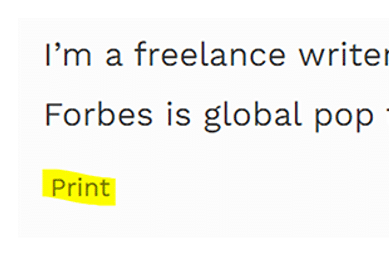
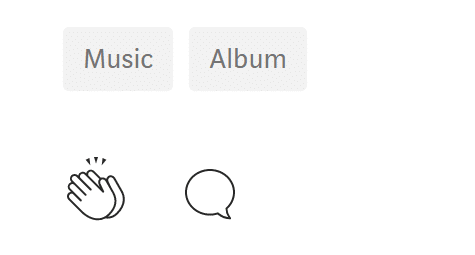

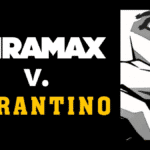



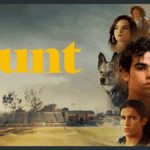
6 comments
I don’t see a “Print” button anywhere. Are you planning use GRTX for this site?
Great question. Probably not. If I were going to register articles on the site, I would likely use the form for Group Registration of Unpublished Works (GRUW). The downside, as I note in the article, is that you can only register up to 10 articles in one application, as opposed to up to 50 for GRTX. That said, if this were my full time job, I’d certainly consider GRTX because of the cost-savings … and add a print button 🙂
Aaron, you have a typo-error: “By including works from 50 to 1,750 [17,500] words (about 70 double-spaced pages), GRTX can encompass works…”
Thanks – fixed
I’m preparing to register some of my “published” social media comments using the GRTX on-line application.
When you sign up to Facebook and other social media sites, you have to grant them, among other things, a non-exclusive LICENSE so they and their members can copy/post, share, distribute, etc. your work (on their platforms).
In general, when a creative grants a license, the work has been statutorily published. The member has granted Facebook the right to further distribute the work to others on its platform and elsewhere.
“Publication” is the distribution of copies [via the author or licensed through a third-party] …of a work to the public by sale or other transfer of ownership, or by rental, lease, or lending [collectively, licensing]. The offering to distribute [license] copies …to a group of persons for purposes of further distribution [licensing] …constitutes publication.
Permission & GRTX Registration: As the author of this specific comment, I immediately grant Aaron Moss and visitors to “CopyrightLately” a non-exclusive license to copy, share, and/or further distribute it (with an attribution & link-back to CopyrightLately). I’m planning to register this published comment via the GRTX application.
I’m late to the game on this copyright news. But I agree wholeheartedly with your recommendations to the US Copyright Office at the end of this article. Are you able to explain to me why they initially made a distinction between published and unpublished works and their respective copyright processes in the first place? Is there a reason an unpublished work should receive different copyright treatment than a published work? (Assuming we all had a clear definition of “published”.)